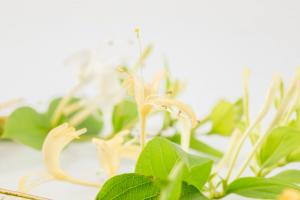Introduction
Orchids are beautiful and delicate plants that can brighten up any home or office space. However, caring for them can be a bit challenging, and they are prone to dying if not given proper attention. In this article, we will discuss how to save a potted plant orchid from dying.
Identify the Problem
The first step in saving a dying orchid is to identify the problem. There are various reasons why an orchid may be dying, including overwatering, underwatering, insufficient light, pests, and disease. Check for any signs of disease, such as yellow or brown spots, wilting leaves, or rotten roots. Also, examine the soil and the orchid's leaves for any pests or fungi.
Adjust Your Watering Habits
Overwatering or underwatering is the most common reason why orchids die. Either way, the result is the same: the roots of the orchid will start to rot, and the plant will die. To prevent this, you need to adjust your watering habits. Water your orchid once a week, and make sure to allow the soil to dry out between waterings. Also, avoid getting water on the leaves or flowers, as this can cause them to rot.
Provide Adequate Light
Orchids require adequate light to thrive, but too much or too little can be harmful. Ideally, orchids should receive bright, indirect light for around six hours a day. If your orchid is not getting enough light, move it closer to a window or invest in a grow light. If your orchid is getting too much light, move it further from the window or use sheer curtains to filter the light.
Control Pests and Disease
Pests and disease can quickly kill an orchid. If you notice any signs of disease, such as yellow or brown spots, wilting leaves, or rotten roots, you need to act fast. Remove any affected leaves or sections of the plant, and treat with a fungicide or insecticide. Also, make sure to keep your orchid away from other plants that may be infected. Regularly inspect your orchid for any signs of pests or disease and take action to control them promptly.
Repot Your Orchid
If your orchid is dying because of root rot, repotting it may be necessary. Gently remove the orchid from its pot and examine the roots. If they are brown, mushy, or have a foul smell, cut them off with sterile scissors. Then, repot the orchid into a fresh potting mix and water it well. Be careful not to overwater it immediately after repotting as this can cause further damage to the roots.
Conclusion
By following these tips, you can save a potted plant orchid from dying. Remember to identify the problem, adjust your watering habits, provide adequate light, control pests and diseases, and potentially repot your orchid. With proper care and attention, your orchid will thrive and continue to brighten up your space for years to come.

 how many times do yo...
how many times do yo... how many planted tre...
how many planted tre... how many pine trees ...
how many pine trees ... how many pecan trees...
how many pecan trees... how many plants comp...
how many plants comp... how many plants can ...
how many plants can ... how many plants and ...
how many plants and ... how many pepper plan...
how many pepper plan...
































